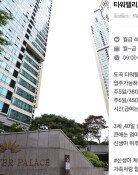Korea to promote traditional food as key export items
Korea to promote traditional food as key export items
Posted August. 13, 2014 05:36,
Traditional processed food, including kimchi, samgyetang (chicken soup with ginseng), and hangwa (traditional Korean cookies) will be promoted as key export items. At the 6th trade-investment promotion meeting at the presidential office on Tuesday, the Agriculture, Food and Rural Affairs Ministry reported current situation in the efforts to promote export of agro-fisheries products and plan to expand their export, which includes these and other matters.
The ministry will hold negotiations on Chinas hygienic standard on kimchi with Beijing in September, and speedily conclude the process to export kimchi to the worlds most populous country. At the Korea-China summit held in July, the two countries agreed to revise Chinas hygienic standards concerning import of kimchi.
Thus far, China has been banning customs clearance of Korean-made kimchi by applying the same hygienic standards as that applied to its traditional food paochai. Paochai is produced with using boiling water containing salt, Chinese pepper and red pepper, cooling it off, and adding vegetables before getting it fermented. Hence, strict hygienic standards can be applied to the food when it comes to bacterial content. Considering Chinas kimchi market is worth 1.5 trillion won (1.46 billion U.S. dollars) per year, the Korean food and agriculture ministry plans to develop high value-added kimchi and differentiate this from low-cost locally produced kimchi in China.
The ministry also plans to expand export of traditional foodstuffs including hangwa, pastes such as red pepper paste, and makgeolli (rice wine). A source at the ministry said after the Chinese First Lady Peng Li Wian, the wife of Chinese President Xi Jinping, purchased hangwa at Dongdaemun shopping mall in Seoul during her visit to Korea the Korea-China summit in July, online shopping malls in China have seen hangwa sales increase.
Headline News
- Med professors announce intention to leave hospitals starting Thursday
- Bridge honoring Sgt. Moon Jae-sik unveiled in Pennsylvania
- Chief of Staff Chung tells presidential secretaries to stay away from politics
- US FTC bans noncompete agreements
- N. Korea launches cyberattacks on S. Korea's defense companies







